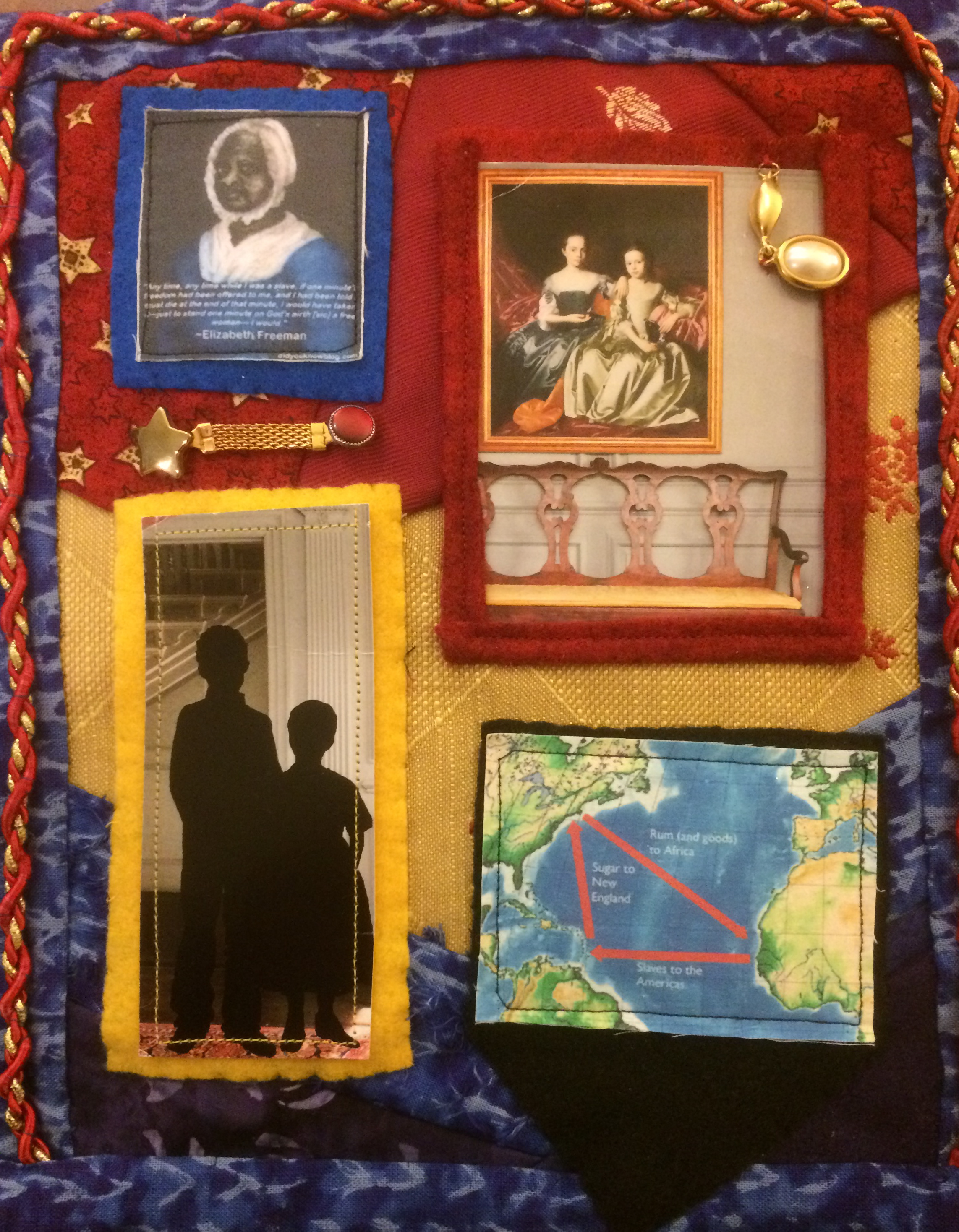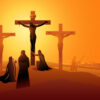Artist’s Background
Nancy first encountered Journal Quilts at the Lowell Quilt Festival. She’s a writer, so the 8 ½ x 11 inch format, exactly the size of a piece of typing paper, appealed to her. She began sewing her first quilt with purple felt praying hands and tiny Tibetan prayer flags to celebrate Peace Day in August 2006. Since then, she’s created more than 100 quilts. Many of them focus on civil rights and American history.
She likes the open-ended creative possibilities of the small art quilt format because the size makes it possible to complete an art quilt in a single day. She uses small scraps of fabric and embraces whatever embellishments fit the theme. Pictures expand the design options. Images of angels, stars and heavenly nights bring blessings to the work, while special colors and fabrics reflect the changing seasons and cycles of life. Nancy explains, “The practice of creating a monthly art quilt centers me, like meditation or Yoga. After sewing it, I sometimes understand the subject of my quilt differently.”
She grew up in Ohio and graduated from Oberlin College, later receiving her J.D. from Northeastern and working as General Counsel for the state vocational rehabilitation agency. She is a retired lawyer and now works as a volunteer editor with the Civil Rights and Restorative Justice Project at Northeastern University School of Law when she is not making quilts.
About the Collection
Nancy Earsy’s art quilts depict America’s long struggle for equal rights and racial justice. Her goal is to spotlight events and hidden heroes from the past, as well as contemporary leaders, to inspire understanding and positive action for change.
This exhibit focuses on civil rights issues from long ago as well as modern times. The zig-zag progress and setbacks of American history are reflected in images of plantations in the North and South, along with modern heroes and events like President Obama’s election. Quilts in this collection feature abolitionist leaders Harriett Tubman and Frederick Douglass, who spoke out to end the brutality of slavery. Less known heroes include Yulanda Williams, a community police officer in San Francisco, and Harry T. Moore, who worked with the NAACP to enroll 116,000 new African American voters in Florida when the Supreme Court struck down discriminatory restrictions on voting in the 1940s.





